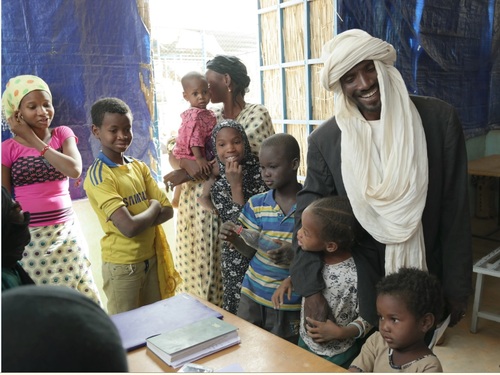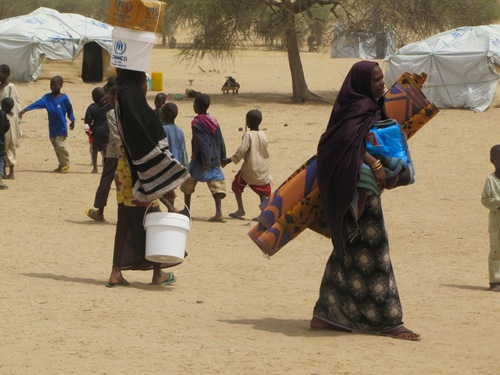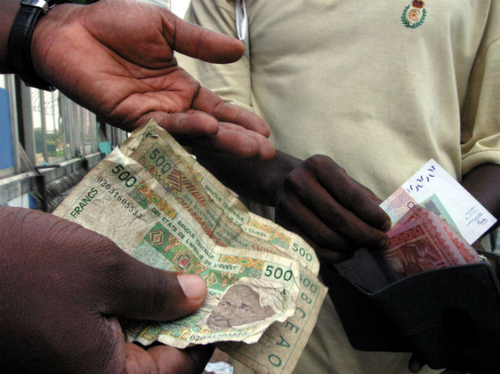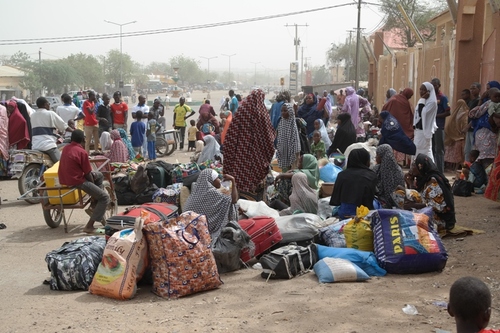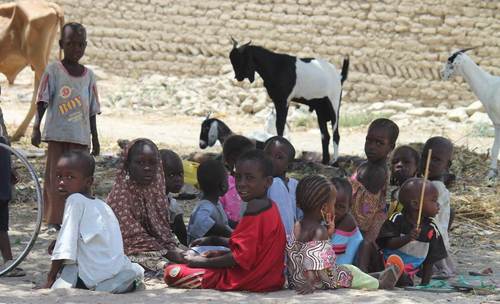UNHCR Niger
Month
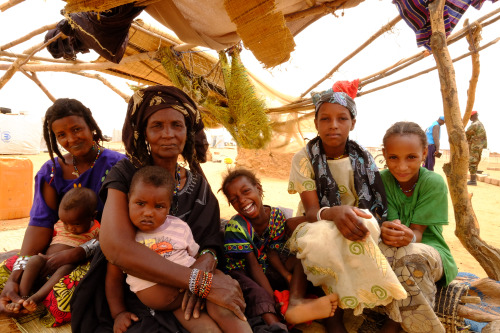
Mister M’Baow hails from Gao, in northern Mali. Since 2012 he is one of the many Malian refugees in Tabareybarey camp who are dreaming of going back home. He lives in one shelter with his eleven family members. Since last year he registered three times to go back to Gao. Each time he withdrew his return application because of last minute information, received through the radio or from fellow stallholders in the market, that the situation in Mali has gotten worse again. He says that he will patiently wait in Tabareybarey, but he misses home and his activities: “I am sitting idle all day, looking for things to happen. However, I can send my children to school and feel safe inside the camp”.
Fatimata finds herself in a similar situation. Fatimata comes originally from Ansongo and saw her parents killed in front of her and the herd of animals on which the family depends wiped out by insurgents. “I am left with nothing, They took everything from me” she says. She also put her name on the return list several times. But eventually she decided that for the safety of her children she will stay in Niger until calm comes back to her home town in Mali.
UNHCR has completed a survey among the inhabitants of the three Malian refugee camps in Tillabery Region on their intentions to return. The results are showing that globally 54% of camp inhabitants haven’t taken a decision yet and prefer “to wait and see”. An additional 14% have stated their will to remain in camps for, at least) the next twelve months. On the other hand, 34% - or 9,000 people – stated that they intend to return soon during the coming months. In general, the population of Tabareybarey camp seems more inclined to return than in other camps. This might be linked to the situation in Ansongo district which is not, like neighbouring Ménaka, controlled by armed groups.
The recent failure of the Algiers Peace Talks has not re-assured the Malian refugees living in Niger. This is why it remains doubtful that Aminata, a mother of five, will return anytime soon. She also put her name down several times in order to return with UNHCR’s assistance. But each time her family and friends urged her not to leave the camp due to the continuous insecurity in Northern Mali.
Click here to see the detailed results of the survey: http://data.unhcr.org/SahelSituation/download.php?id=1150

The AREN, Association pour la Redynamisation de l’Elevage au Niger, wrote a report highlighting the alarming situation of livestock and agricultural activities in the Diffa region.
Traditional livestock and agriculture activities in the Diffa region strongly depend on rainfalls. Even though there is a rainy season, rainfalls are often not abundant enough and irregularly spreads over the territory. This year, the Diffa region only registered one forage production enabling to feed 40% of the livestock. Pastoral herding is then a challenging activity in such circumstances, and since the attacks of the insurgents, beginning of February, it is a serious issue. Harouna Hardo, a stock breeder from the North of Diffa, says: “The bad winter season that follows one another in Niger, particularly in Diffa make impossible the breeding of our cattle and we are considerably poorer. Even more extreme this year, the prevailing insecurity along our borders is overwhelming our pastoral zones. “
Indeed, pastoral activities rely on the herd’s movement across a given territory, and since the deterioration of the security situation, the movements on traditional axes are not possible anymore. Farmers, stock breeders and fishermen usually staying in the South East of Bosso, bed of Lake Chad, and all along the Komadougou River for its availability in water, are now all leaving and heading towards North West area. This has for consequence a strong pressure on already existing pastures and existing resources for them. Harouna deplores that “the grazing situation is very critical this year, like previous years we barely overcome the difficulty and it is taking away lives in the population of our livestock.”
Economic activities are totally disturbed in the Diffa region. To access the market to buy food for the livestock or to sell animals in order to better respond to the herd’s need is today impossible.
Diffa region is one of the poorest in the world where any activity is a challenge due to the harsh environment and very little respite given by nature. Since the insurgent’s attacks, the situation for herdsmen is dire.

Les cultivateurs nigériens du célèbre poivron rouge de Diffa (sud-est), qui génère des millions de dollars au Niger, sont au chômage: en quelques mois, ils ont vu leur production affectée et leur quotidien anéanti par les combats qui se déroulent dans la région frontalière du Nigéria.
Avant le début des incursions du groupe armé nigérian en février dernier, les paysans et épiciers de la région de Diffa, située le long de la Komadougou Yobé, rivière alimentant le lac Tchad, se targuaient de produire près de 10 mille tonnes de poivron rouge, ce qui constituait 80% de la production nationale chaque année, a indiqué à Anadolu, Abdoul-Nasser Hamissou, Chef de Division Évaluation environnementale et suivi écologique dans la région de Diffa.
Pour lire l’intégralité de l’article : www.aa.com.tr/fr/headlines/479048–sud-est-niger-boko-haram-condamne-la-culture-du-poivron-rouge-a-la-disparition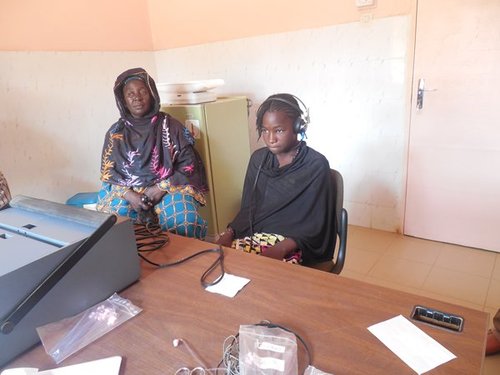



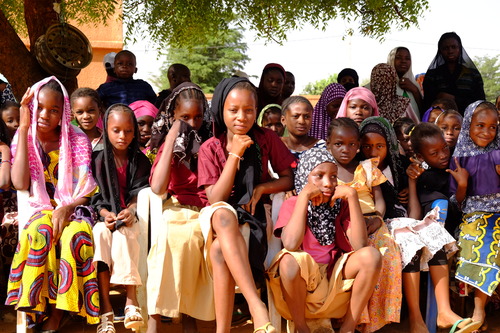
Comme partout à travers le monde, la Journée Internationale de la Femme était fêtée le 8 mars au Niger. Le thème de cette année était : « Autonomisation de la femme – Autonomisation de l’humanité : Imaginez ! ». Dans ce cadre l’UNHCR a organisé des festivités dans toutes les zones au Niger où sont présentes les réfugiées. A Niamey, s’est tenue une après-midi de musique et de réflexion autour de la participation des femmes dans les structures de leadership et de la situation particulière des femmes, et des filles, réfugiées. Entre les interludes artistiques, la parole était prise par les femmes notamment Haja, représentante des femmes réfugiées artisanes de Niamey, qui mettait en avant la force du collectif dans les groupements féminins ; ou encore Awa, jeune réfugiée de 17 ans, qui partageait avec le public un poème écrit pour l’occasion « Femme d’angoisse, femme d’abondance, femme d’amour, femme de souffrance ; je te chante et je te bénis, et je te chanterai toute ma vie ». Pour écouter l’intégralité du poème de Awa : cliquez sur la vidéo.
